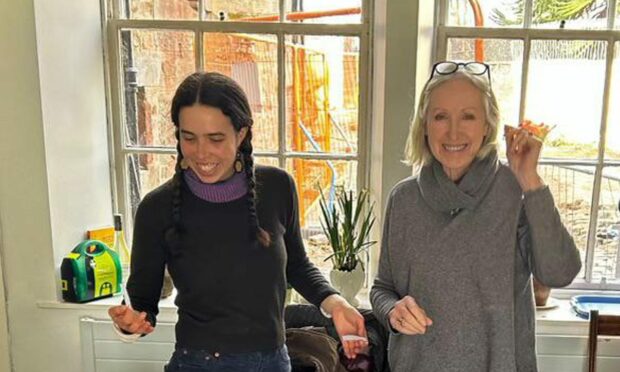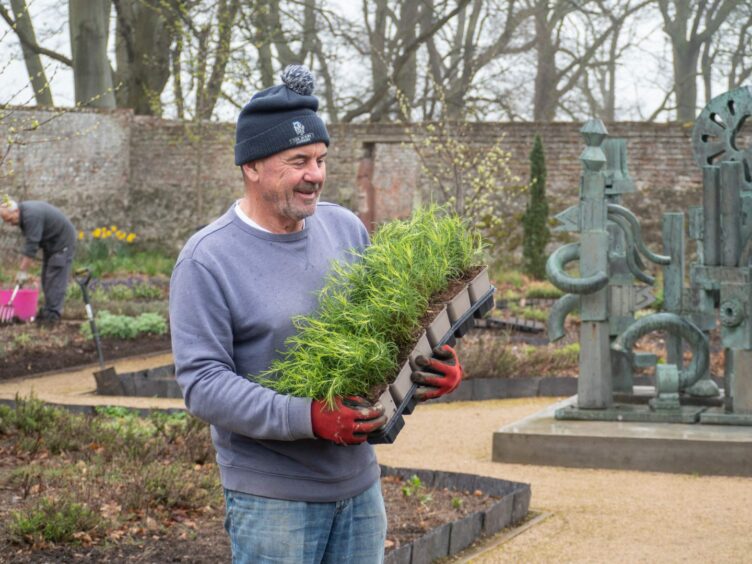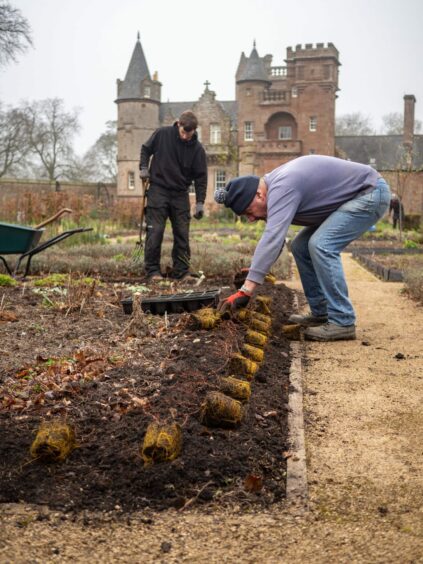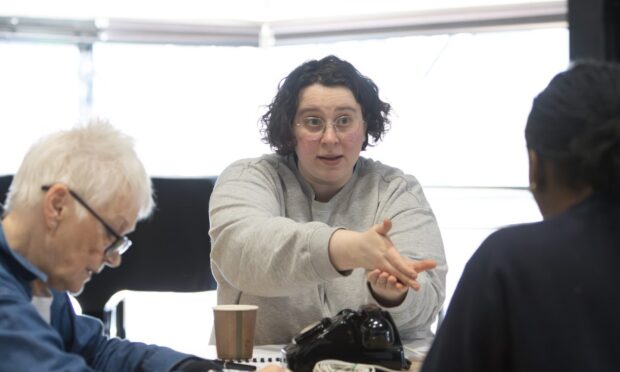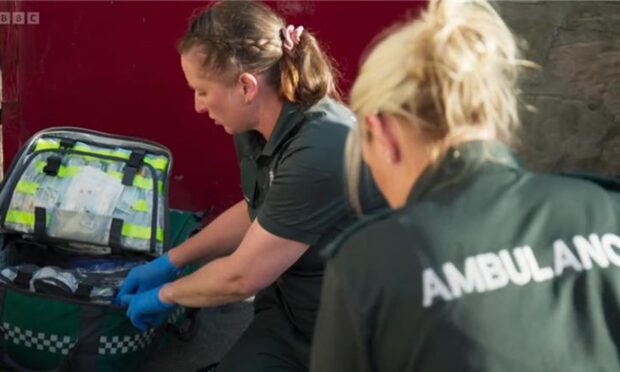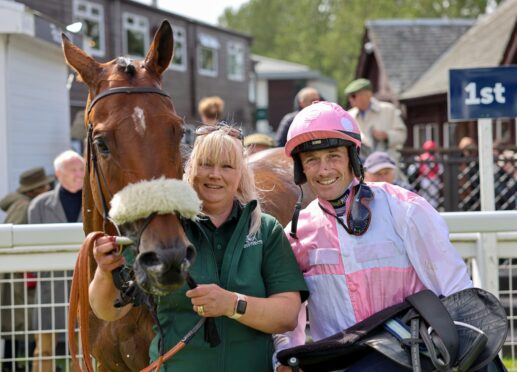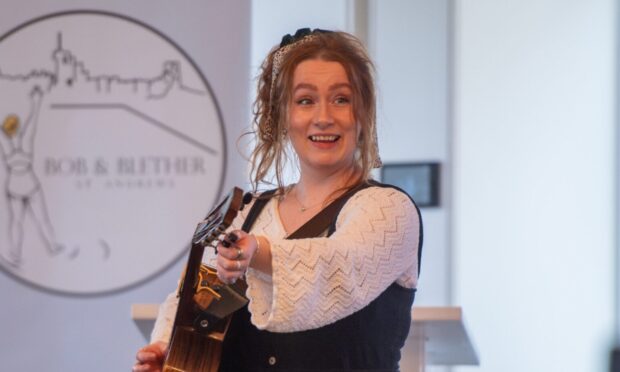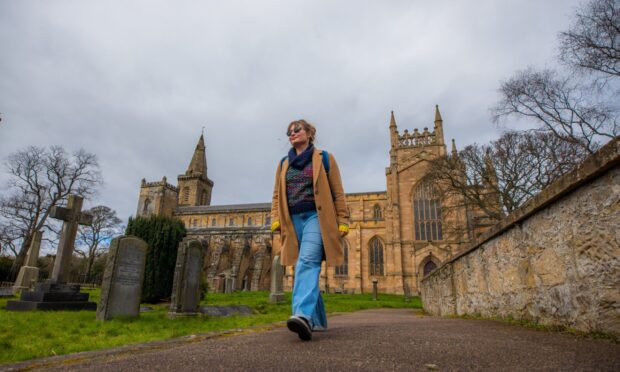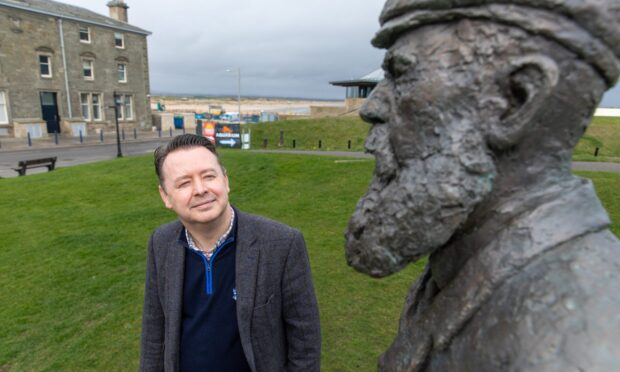To Angus herbalist Terrill Dobson, herbs are not just kitchen flavourings – they are medicines, and they are stories.
“I think everything we need was placed here on the Earth with us,” says Terrill, who has owned an organic farm in Kirriemuir since the turn of the millennium.
“Maybe for a blip in time we all decided we were going to get super medical and we were going to control the world, control our health, control everything.
“And I think maybe now, in all aspects of life, we’re beginning to understand that we actually have to work with nature.
“I’ve had people in my garden say ‘Oh I take so and so but I don’t know if it’s a placebo or not’. And I’m like: ‘Well is it helping you? Then it’s helping’.”
Terrill, originally from the US, studied herbal medicine at Edinburgh University during what she jokingly calls a “midlife crisis”, and grows her own herbal garden at her farm.
Now working with community gardener Carley Wooton and volunteers at Arbroath’s Hospitalfield House, she’s designed a new Physic Garden which opens today with an event including tours of the historic house, talks about the garden, and even a herbal tea making and tasting session led by Terrill herself.
“There’s so much tradition and so many stories, and that’s part of what I really loved about this opportunity with the Hospitalfield Physic Garden,” enthuses Terrill.
Famous Dundee doctor used herbal doctrine – and found aspirin
One such story is based on the 15th century Doctrine of Signatures, which states that herbs resembling various parts of the body can be used by herbalists to treat ailments of those body parts.
Terrill approaches the doctrine with a healthy pinch of salt, admitting that although there are instances where the concept holds up, it’s more likely to be a tool devised for remembering the uses of herbs than divine intervention.
“Many things in the Doctrine of Signatures do indeed do what their various forms say they would do,” she says, “but whether everything was given some divine clue or not, I don’t know.
“For example, angelica is good for digestion, and it has these hollow stems. And your digestive system is this long, hollow tube.
“So was angelica placed here with hollow tubes so we would know? Or is that just the way we remember?”
Then again, one of Dundee’s most renowned physicians, Dr Thomas MacLagan, is said to have used the Doctrine of Signatures in his search for a cure for rheumatism – a search which led him to the now-popular painkiller, aspirin.
“Dr MacLagan said he was using the doctrine because he was looking for something that would survive well in a boggy situation, and that would mean it would be able to help us deal with a boggy condition like rheumatism,” reveals Terrill.
“And if you think of willow trees and meadowsweet, which both contain the constituents of aspirin, they both want to grow in a boggy situation.”
Herbal medicine booming post-Covid
Terrill has been practicing herbal medicine for more than a decade, but inspiring people to learn more about herbal medicine through targeted workshops has become even more important to her since the Covid-19 pandemic.
“I feel especially after Covid, it’s really important for people to feel a bit more empowered and take more ownership over their health and their wellbeing,” she says.
“With guidance, there’s a lot we can do naturally. Thyme is a really good antibacterial herb. Elderflower has antihistamine properties, and elderberries boost the immune system.”
However, she insists that herbal medicine is not a replacement for pharmaceuticals – and should be used under the guidance of a trained herbalist.
“Herbal medicine is really excellent for chronic, systemic things like menopause and IBS,” she continues.
“It’s not where you turn if you have a heart attack or a stroke by any means, and it’s not where you turn for cancer. But it might be where you turn for some relief.”
Physic Garden reflects Hospitalfield’s healing history
And although herbalism and natural healing may be experiencing a post-Covid boom, Hospitalfield community gardener Carley points out that practice of herbal medicine has taken place on the Arbroath site for more than 800 years.
“The Physic Garden project was a direct response to Hospitalfield’s history as a hospital in which monks were looking after the sick and looking after weary travellers who had made the long pilgrimage to the abbey in Arbroath,” explains Carley.
“The monks were growing these herbs and cultivating these remedies in order to help people. This garden has been tended for 800 years, so you can feel like you’re walking in the footsteps of those monks.”
The Hospital Field Physic Garden opens to the public today, June 24. For more information or to volunteer as part of the Garden Club, please see the Hospitalfield website.
